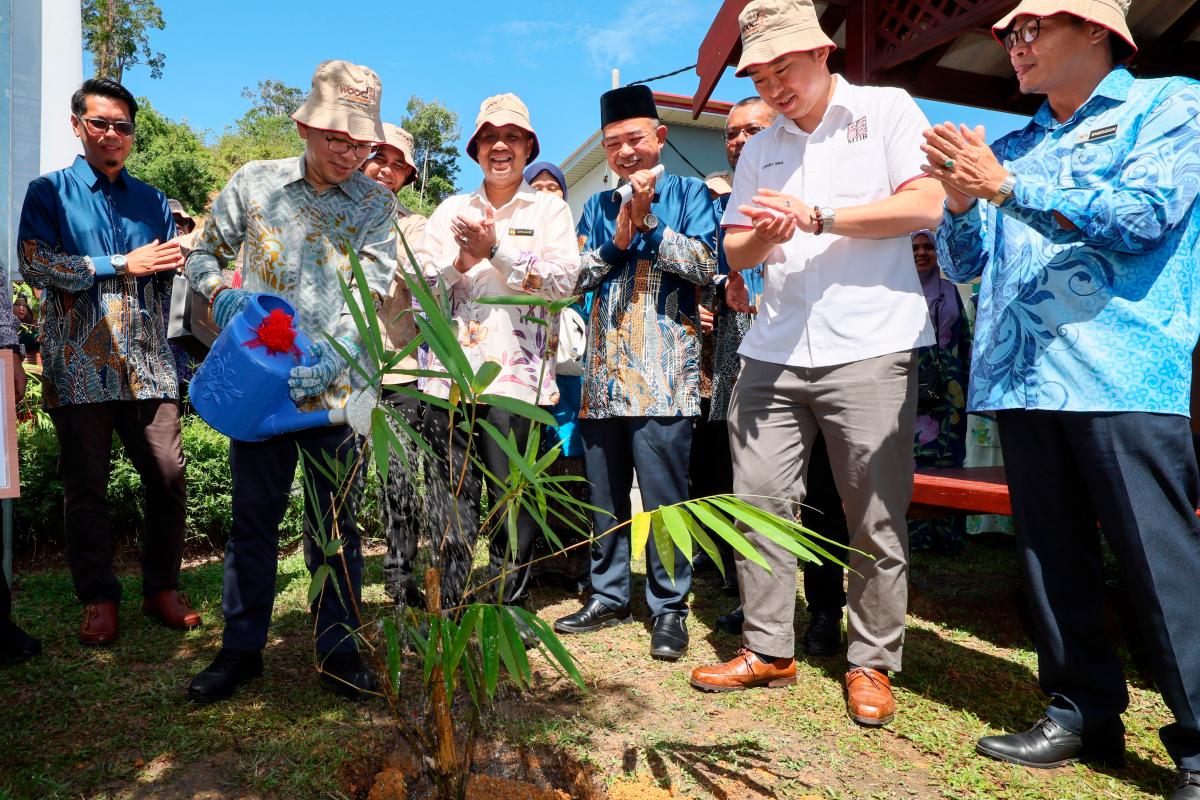KUALA BERANG: The government is undertaking various initiatives to boost the bamboo industry, which has the potential to emerge as a new economic driver, ultimately benefiting both the people and the nation.
Deputy Plantation and Commodities Minister Datuk Chan Foong Hin said that, according to a report by Market Data Forecast, the global value of bamboo exports stood at US$70.78 billion (RM299.43 billion) in 2024 and is projected to rise to US$74.26 billion (RM314.16 billion) this year.
“This data demonstrates the significance of the bamboo industry to global development and demand.
“The current focus is on innovation in producing high-value bamboo products, skills development, and the adoption of modern technology with the full involvement of all stakeholders,“ he said at the opening ceremony of the World Bamboo Day Malaysia 2025 at the Bamboo Model Farm, Terengganu Timber Industry Training Centre here today.
Representing Plantation and Commodities Minister Datuk Seri Johari Abdul Ghani, Chan said that more than 577 local entrepreneurs are currently engaged in various bamboo-related sectors, including furniture, construction, textiles, food, charcoal, and handicrafts.
He said this clearly demonstrates that bamboo is no longer merely a traditional material but holds strong potential as a competitive modern commodity.
In this regard, Chan noted that emphasis is being placed on high-value bamboo product innovation, skills development and the adoption of modern technology, with full stakeholder participation.
Among the government’s efforts, he added, are initiatives under the Malaysian Timber Industry Board (MTIB), which is conducting various ongoing studies on value-added downstream products, such as bamboo fibre extraction for furniture manufacturing and use as a building material.
He said the durability of bamboo products demonstrates the industry’s capacity to keep pace with the demands of modern technology.
“This effort not only strengthens the development of bamboo-based technology and innovation but is also supported by technical advisory services and human capital development training programmes in bamboo plantation and technology,” he said.
In addition, Chan said the government, through MTIB, has implemented the Bamboo Community Farming Development Project across 135.4 hectares nationwide, involving small-scale farm entrepreneurs.
Through the programme, participants with bamboo farms ranging from 0.4 to 3.99 hectares are provided with incentives such as bamboo seedlings, fertiliser and training.
“At the same time, bamboo cultivation in Malaysia now exceeds 4,000 hectares, the majority of which has been developed by the private sector to meet domestic market needs,” he added. – Bernama









